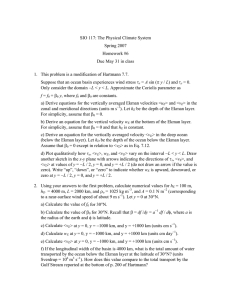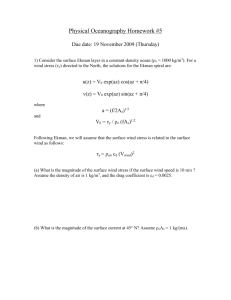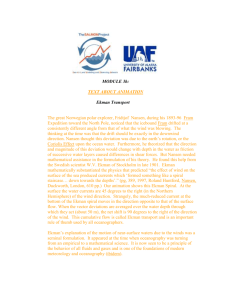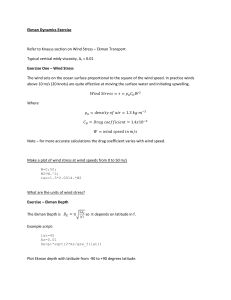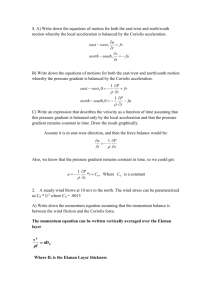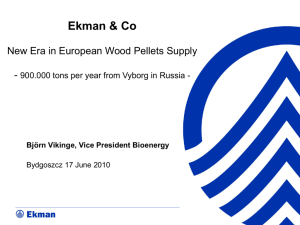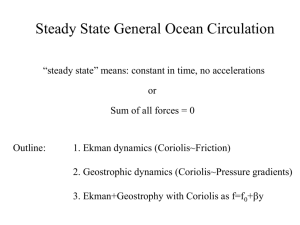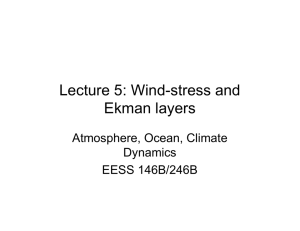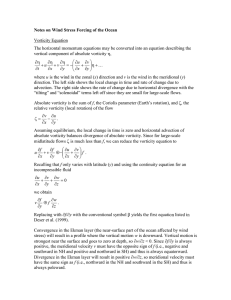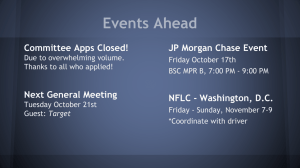M2-Ekman Layer
advertisement
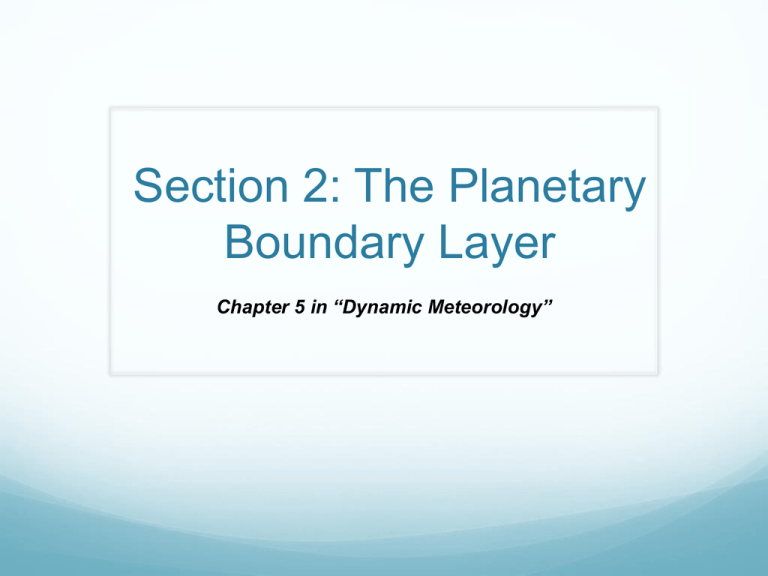
Section 2: The Planetary Boundary Layer Chapter 5 in “Dynamic Meteorology” Definition The planetary boundary layer is that portion of the atmosphere in which the flow field is strongly influenced directly by interaction with the surface of the earth. How does the surface of the earth influence the flow field? Eddies transport heat, moisture and momentum. The mechanical impact of all subgrid-scale motions upon an observable flow is collectively called a frictional force. Force Balance PGF At the surface Within the PBL Top of the PBL PGF PGF p −2δp p −2δp p −2δp p −δp p −δp p −δp V p V p p Co Co PGF ~ Co Three-way balance Fr PGF ~ Fr A Tea Cup Experiment Ekman pumping (or Ekman suction) and Secondary Circulation The flow in the free atmosphere is indirectly affected by the friction near the surface through Ekman pumping or Ekman suction. Mass convergence into low pressure centers and mass divergence out of high pressure centers will eventually destroy the weather systems while forcing upward vertical motion in low and downward vertical motion in high. Equations in the PBL Do we have a closed equation set? No! Closure assumptions must be made to approximate the unknown fluxes in terms of the mean state variables. Assume horizontal homogeneous… Assume horizontal homogeneous… Assume force balance in the PBL… 0 0 Apply the flux-gradient theory Assume the vertical flux of a given field is proportional to the local gradient of the mean: u u'w' K m ( ) z v v'w' K m ( ) z u' ' K h ( ) z where Km is the eddy viscosity coefficient and Kh is the eddy diffusion of heat. Assuming Km is a constant, we have: We will examine the effect of friction on the wind in the Ekman layer: How does the wind field change with height? What determines the Ekman pumping (or Ekman suction)? How is the Ekman layer coupled to the free atmosphere? Limitations The Ekman layer solution does not apply to the surface layer. The flux-gradient approximation may not be valid. Km is not a constant in the PBL. The atmosphere is not neutral. Barotropic, neutral atmosphere Stable Stratification Spin-down above the PBL Adiabatic cooling BL drag + free atmosphere rotation convergence over cyclonic circulation upward mass transport out of the Ekman layer divergence above the Ekman layer spindown of the cyclone in the free atmosphere BL drag + free atmosphere rotation convergence over cyclonic circulation Ekman pumping adiabatic cooling (stable stratification) thermal wind balance
